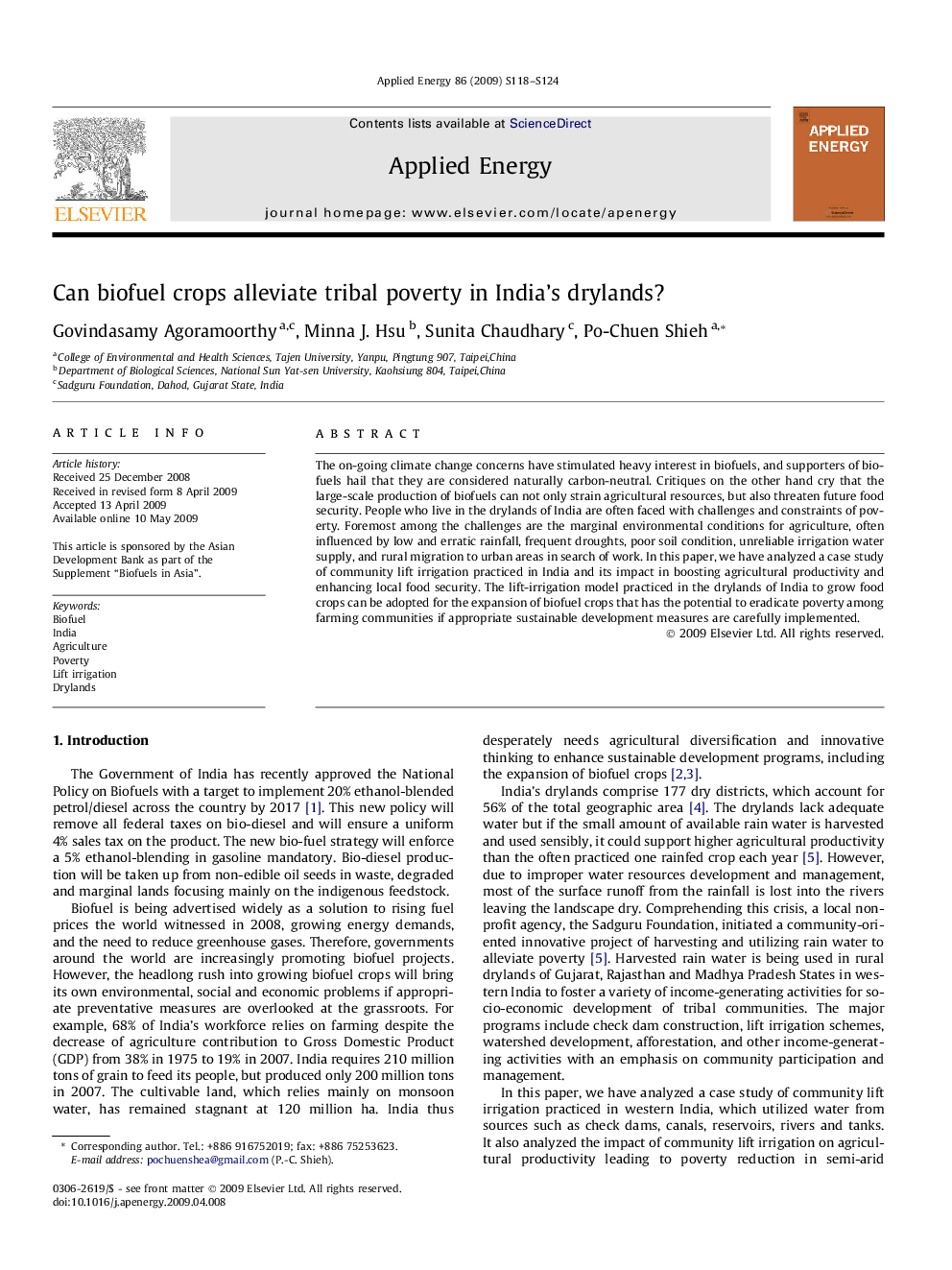| کد مقاله | کد نشریه | سال انتشار | مقاله انگلیسی | نسخه تمام متن |
|---|---|---|---|---|
| 245199 | 501976 | 2009 | 7 صفحه PDF | دانلود رایگان |

The on-going climate change concerns have stimulated heavy interest in biofuels, and supporters of biofuels hail that they are considered naturally carbon-neutral. Critiques on the other hand cry that the large-scale production of biofuels can not only strain agricultural resources, but also threaten future food security. People who live in the drylands of India are often faced with challenges and constraints of poverty. Foremost among the challenges are the marginal environmental conditions for agriculture, often influenced by low and erratic rainfall, frequent droughts, poor soil condition, unreliable irrigation water supply, and rural migration to urban areas in search of work. In this paper, we have analyzed a case study of community lift irrigation practiced in India and its impact in boosting agricultural productivity and enhancing local food security. The lift-irrigation model practiced in the drylands of India to grow food crops can be adopted for the expansion of biofuel crops that has the potential to eradicate poverty among farming communities if appropriate sustainable development measures are carefully implemented.
Journal: Applied Energy - Volume 86, Supplement 1, November 2009, Pages S118–S124